Space
Sign up for our newsletter
We summarize the week's scientific breakthroughs every Thursday.
-
 Physics
PhysicsLevitating plastic beads mimic the physics of spinning asteroids
"Tabletop asteroids," buoyed by sound waves, hint at why some loosely bound space rocks have odd shapes and can’t spin too quickly.
-
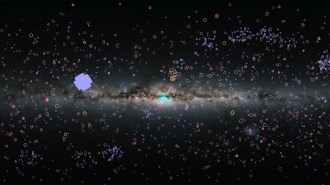 Astronomy
AstronomyNASA’s exoplanet count surges past 5,000
With a new batch of 60 confirmed exoplanets, the number of known worlds in our galaxy reaches another milestone.
By Liz Kruesi -
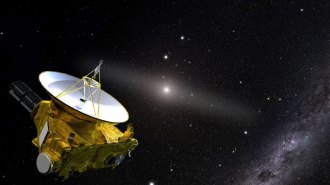 Astronomy
AstronomyThe universe’s background starlight is twice as bright as expected
Images from the New Horizons spacecraft suggest that light from all known galaxies accounts for only half of the cosmos’ visible background glow.
By Liz Kruesi -
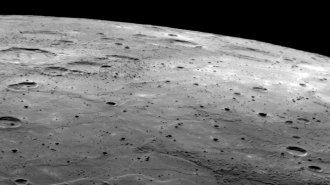 Planetary Science
Planetary ScienceDiamonds may stud Mercury’s crust
Billions of years of meteorite impacts may have flash-baked much of a primitive graphite crust into precious gemstones.
By Nikk Ogasa -
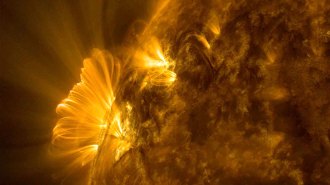 Astronomy
AstronomySome of the sun’s iconic coronal loops may be illusions
Folds in the plasma that streams from the sun might trick the eye into seeing the well-defined arches, computer simulations of the solar atmosphere show.
-
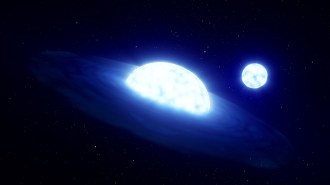 Astronomy
AstronomyEarth’s purported ‘nearest black hole’ isn’t a black hole
A disputed multiple-star system doesn’t have a black hole, as once reported, but is actually a missing piece in binary star evolution.
By Liz Kruesi -
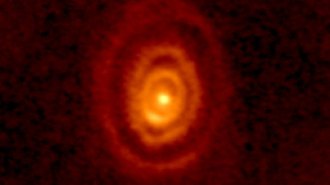 Astronomy
AstronomyA new image captures enormous gas rings encircling an aging red star
The rings, seen for the first time, provide insight into how giant stars lose mass and seed the cosmos with elements.
By Ken Croswell -
 Astronomy
AstronomyAstronomers may not have found a sign of the universe’s first stars after all
A new study of radio waves from early in the universe’s history finds no hint of the “cosmic dawn” claimed by an earlier study.
-
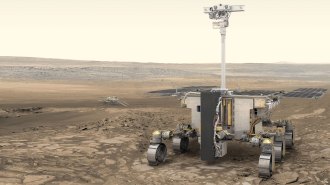 Space
SpaceHow Russia’s war in Ukraine hinders space research and exploration
A Mars rover, an X-ray telescope and several low-Earth satellites are at risk in response to international sanctions on Russia.
By Liz Kruesi -
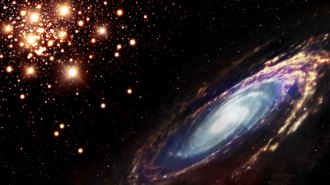 Astronomy
AstronomyA fast radio burst’s unlikely source may be a cluster of old stars
The burst’s origin in a globular cluster suggests that not all these enigmatic blasts come from young stellar populations.
-
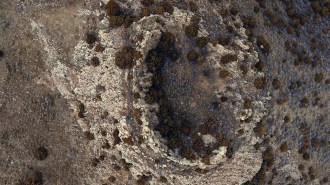 Planetary Science
Planetary ScienceAn ancient impact on Earth led to a cascade of cratering
For the first time, scientists have discovered clusters of craters on Earth that were formed by the impacts of material thrown out of a larger crater.
By Sid Perkins -
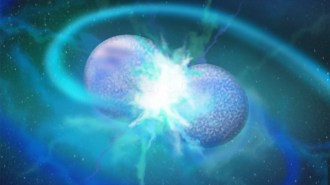 Astronomy
AstronomyA rare collision of dead stars can bring a new one to life
These carbon- and oxygen-covered stars may have formed from an unusual merging of two white dwarfs.
By Nikk Ogasa